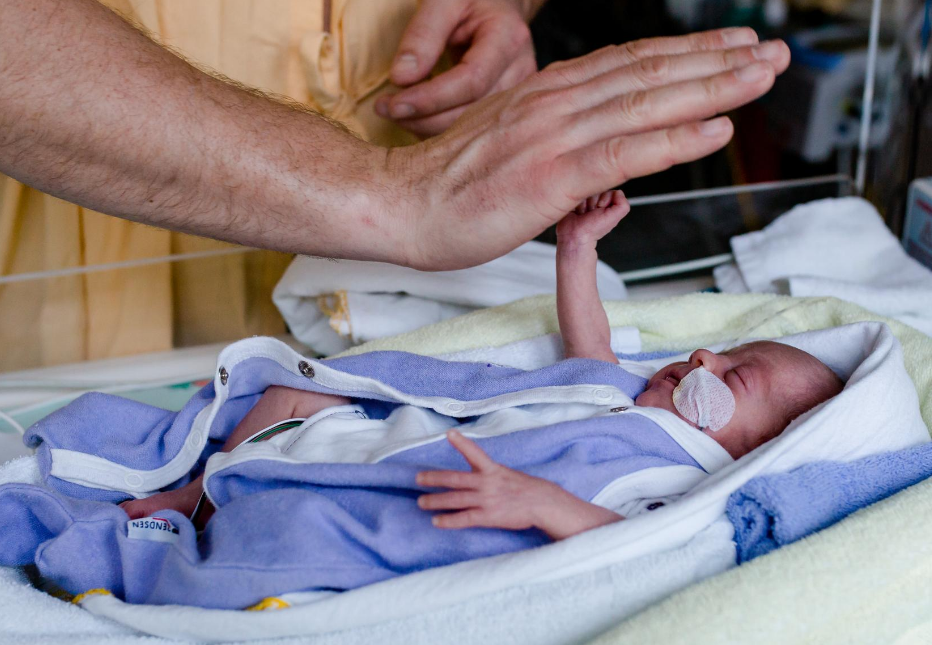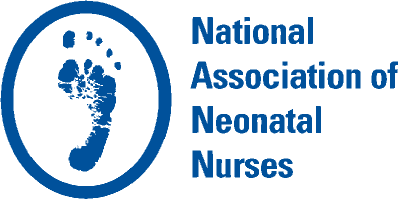Our Every Day is Their Once in a Lifetime
By Lily Batchelor, RN BSN NNP-S
NANN Footprints: Stories from the NICU August 2020

"Our every day is their once in a lifetime," one of my previous directors used to say. I learned this phrase while working as a certified nurse aide in labor and delivery. Ten years later, it still resonates with me as a neonatal intensive care unit (NICU) nurse and student neonatal nurse practitioner. The phrase is applicable to the birth experience and the delivery of well newborns, but it especially applies to our work in the NICU.
With time, our every day in the NICU becomes routine and familiar. We carefully assess our patients, place intravenous (IV) catheters, safely administer medications, and go about our days. Yet, working in the NICU isn't always predictable and easy. An admission or unforeseen sepsis workup may catch us by surprise, but we quickly adapt and rise to the occasion. We resuscitate infants who struggle to breathe, witness death, and comfort distraught parents. Despite the difficulties, taking care of the neonatal population is special because we often get the opportunity to help babies heal, grow, and go home with their families. We are NICU nurses. This is our every day.
What is a NICU parent's once in a lifetime? Most of us know all too well, but it can be easy to forget. Their once in a lifetime was supposed to be the birth of a healthy, term baby. Some parents are stripped of their ideal experience and instead are thrown into the unfamiliar NICU environment. Imagine this: a mother is discharged home without her baby. When she is finally able to visit, her baby is still in an incubator and tethered to machines. The monitors are alarming endlessly and her baby is crying as nurses poke four times to place an IV. After holding her baby briefly, she again returns home without her baby. She pumps every three hours, desperately trying to increase her milk supply for her baby that cannot yet eat. Her baby is sick, not at home with her, and she doesn't know when they will be home as a family. Having a baby in the NICU is not what parents plan on and they have lost all sense of control. Nevertheless, nurses can positively impact and create a once in a lifetime NICU experience for parents.
Nurses have the power to improve a family's NICU stay by providing family-centered care. First, nurses can support family-centered care by simply asking parents what is important to them. We should ask parents what their goals are for the day and how they learn best; by doing this, nurses can tailor their care based on each parent's specific goals and needs. Parents who are new to the NICU will have different needs than parents whose baby has been in the NICU for a month. First-time parents face additional hurdles in that they must learn to provide basic care for their baby, such as changing diapers, while simultaneously adjusting to an unexpected NICU stay.
New NICU parents should be familiarized with the NICU environment. We can teach them about our equipment, care times, and procedures, so that our every day may appear less daunting to NICU parents. Seasoned NICU parents may be more independent and nurses should support that freedom and independence when possible. Secondly, nurses can demonstrate family-centered care by encouraging parents to participate in their baby's care when reasonable. Although parents are often nervous about monitor leads and IVs, providing hands-on care for their baby is a positive coping mechanism. A third way we can foster family-centered care is to give parents a sense of control by providing choices. For example, a nurse may ask, "do you want to hold your baby skin-to-skin or swaddled?" or "do you want to bathe your baby now or at 11:00?"
For many NICU nurses, providing family-centered care is not new information, but sometimes we may need a reminder. Any time we are feeling burnt out or like we've done this a thousand times, we need to stop for just a moment and remember that "our every day is their once in a lifetime."
